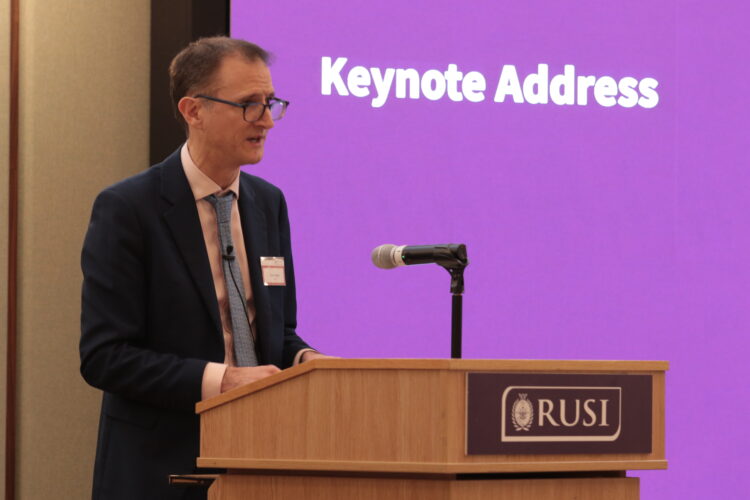In a compelling keynote speech delivered at the inaugural Serious and Organised Crime (SOC) conference hosted by the Royal United Services Institute (RUSI), the Director General of the National Crime Agency (NCA) emphasized the critical need for a collaborative and evidence-based approach to combat the evolving threats posed by serious and organised crime.
The conference, attended by experts from various professions and disciplines, provided a platform for in-depth discussions on the challenges posed by serious and organised crime, which, despite considerable efforts, has continued to adapt and, in some areas, increase in complexity.
The Director General outlined the multifaceted nature of the threat, highlighting its international nexus and the role of technology in transforming traditional crimes and facilitating the emergence of new ones.
Acknowledging the chronic and corrosive impact on communities across the UK, he stressed the importance of addressing these challenges collectively.
The NCA’s response to serious and organised crime revolves around a twofold strategy: leading a system-wide response and targeting specific operations for maximum impact.
The Director General outlined the agency’s focus on disrupting the upper echelons of criminal networks, tackling threats at their source and en route to the UK, and addressing crimes facilitated by technology, especially online.
Praising RUSI for structuring the conference around these key areas – Upstream, Overseas, and Online – the Director General emphasized the significance of evidence-based analysis in shaping an effective response.
He provided examples of recent analytical advancements, including the use of waste water analysis to understand drug consumption, statistical modeling to identify adults posing a risk to children, and collaborative efforts to bridge information gaps, such as sharing transaction data between banks.
While acknowledging the progress made over the past decade, the Director General identified crucial gaps in knowledge and analytical techniques. He posed seven analytical questions, ranging from improving assessments of money laundering to finding a methodology to compare the impact of different threats.
These questions, he stated, were challenges for the conference’s breakout groups to consider, fostering an environment for the exchange of ideas and solutions.
The Director General concluded by expressing optimism that the conference would pave the way for new relationships, networks, and opportunities to collectively advance the fight against serious and organised crime.
He emphasized that the intellectual exercise undertaken at the conference was not just theoretical but a means to utilize resources effectively in reducing the harm caused by serious and organised crime, meeting the expectations of the public.

AD: Heritage And Restaurant Lounge Bar
-
Share On
- Categories
- Date



